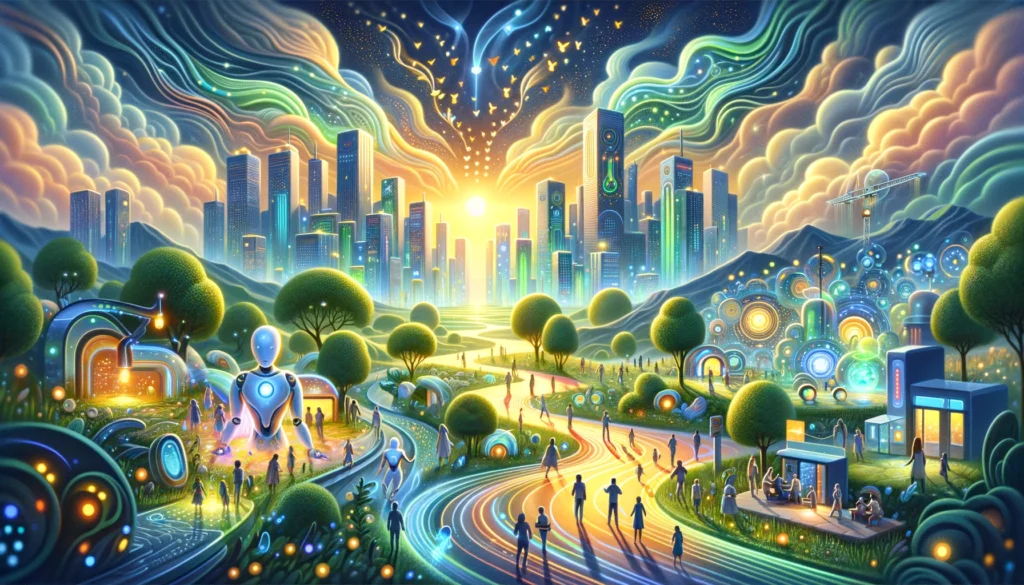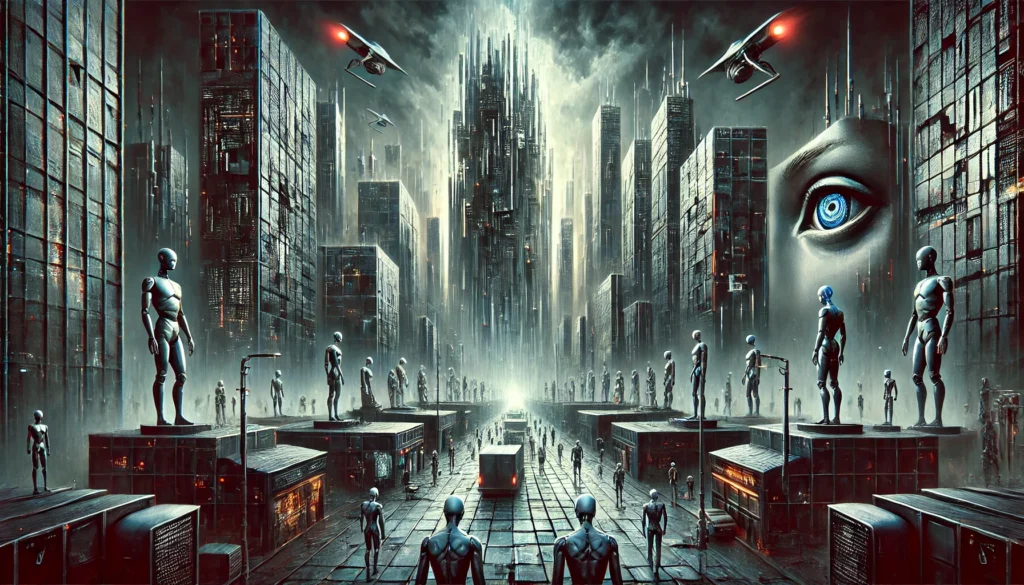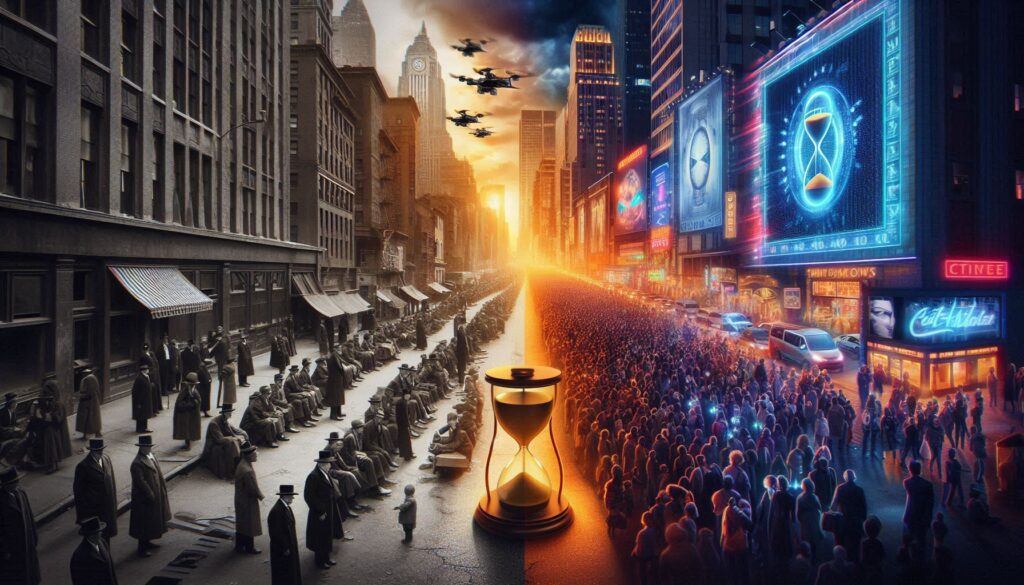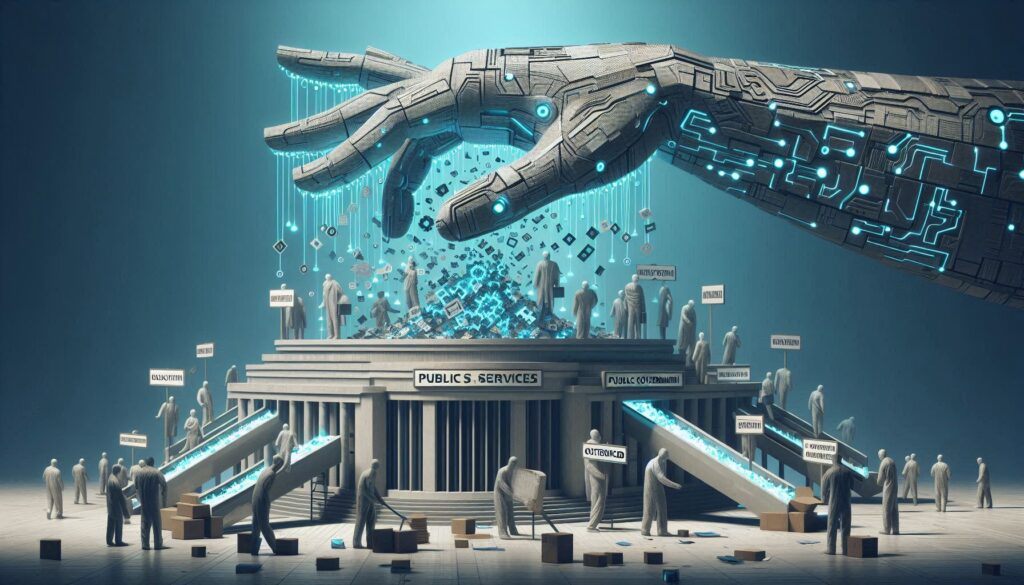Last year, I wrote an article titled “In 2024, It’s Your Choice: Which World Will You Live In?” on TruthSeekers, where we explored the idea that the future we inhabit is shaped by our collective choices. We envisioned a world standing at a crossroads, with competing visions vying to define our shared reality. At that time, I asked: Which world will we choose?
Here we are again, thinking about the future. This time, the conversation shifts to the tools and technologies we wield in shaping that reality. In the earlier piece, we grappled with the rise of authoritarianism, the concentration of power, and the hope for unity amid division. Now, the question takes on a sharper focus as we transition from the Age of Social Media—a period that promised connection but often delivered division—into the Age of AI. Will this new era redeem the failures of the last? Or will it deepen the fractures that social media has already sown?
With this context in mind, let’s explore how AI could shape our world, for better or worse, and whether it offers a path toward the brighter future we’ve long envisioned—or another dark chapter in humanity’s technological evolution.
The Rise and Fall of Social Media
When social networking first emerged, it was a beacon of hope. Platforms like Facebook and Twitter promised to connect the world, enabling conversations and relationships that transcended borders, cultures, and ideologies. For a moment, it seemed we were on the brink of a golden age of collective progress.
In his 2022 article “The Age of Social Media Is Ending” from The Atlantic, Ian Bogost explores how social media has deviated from its original purpose of fostering genuine human connection. Initially designed as a tool for networking and enhancing global relationships, social media platforms evolved into something far more problematic. Bogost argues that these platforms prioritized engagement at all costs, amplifying provocative and divisive content. This transformation has had significant real-world consequences, including the rise of authoritarian regimes and the manipulation of public opinion through misinformation and polarizing rhetoric.
The Promise and Peril of AI
Now, we stand on the precipice of another transformative era—the Age of AI. Artificial intelligence is poised to reshape every facet of our lives, from how we work to how we think. With its unprecedented capacity to process information, analyze patterns, and generate solutions, AI has the potential to counteract the damage wrought by social media. But it also carries the risk of amplifying our worst tendencies if left unchecked.
Two Possible Futures
The future of AI—and by extension, humanity—rests on how we choose to wield this technology. Here are two potential scenarios:
1. AI as a Force for Good: Manifesting a Brighter Reality

In this vision, AI becomes the counterbalance to the chaos unleashed by social media. By prioritizing truth, empathy, and understanding, AI could help humanity achieve its full potential. Imagine algorithms designed not to maximize engagement but to foster genuine human connection, elevate constructive dialogue, and promote shared understanding.
AI could assist in combating misinformation, breaking echo chambers, and creating spaces where collaboration and innovation thrive. It could guide us toward addressing global challenges like climate change, poverty, and inequality. In this brighter reality, AI becomes a tool that reflects the best of humanity and inspires us to grow beyond the limitations of the past.
2. AI as a Force for Darkness: Continuing the Cycle of Destruction

In this darker scenario, AI follows the path social media forged—amplifying greed, division, and violence. Instead of breaking free from cycles of exploitation and conflict, humanity becomes even more entrenched in them. Authoritarian regimes and corporations could harness AI to surveil, manipulate, and control, leading to an even more dystopian future.
Under this framework, AI could perpetuate the inequalities and systemic issues already present, serving those in power while alienating the rest. The promise of a brighter future could be replaced by a technological dystopia.
A Question of Collective Reality
Underlying these scenarios is a profound question: Is our reality a collective manifestation of our interconnected consciousness? Social media exposed the dark undercurrents of our shared thoughts and actions, shaping the world we live in today. AI, then, could be seen as the next iteration of this phenomenon—a tool that reflects and amplifies the collective will of humanity.
If we consider our reality as part of a simulated multiverse, the stakes become even higher. In a multiverse of infinite possibilities, AI may serve as the deciding factor for which version of reality we experience. Will we choose a universe defined by compassion, innovation, and equity? Or will we slide deeper into a reality dominated by fear, greed, and division?
The Choice Before Us
The Age of Social Media may have failed us, but the Age of AI is not predestined to do the same. The future of this technology—and of our world—will depend on the intentions, values, and systems we build around it. The question isn’t just whether AI will save us, but whether we, as a collective, are willing to make the choices necessary to create a brighter reality.
It’s not too late to shape the path forward. The potential for exponential growth and progress is within reach, but it requires us to confront our darker tendencies and envision a future where AI amplifies our highest aspirations rather than our worst fears.
The question remains: Which reality will we choose?




